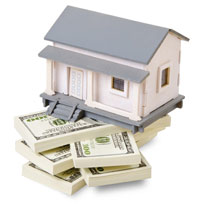 Once you find a great Seattle or Eastside home, the first step to getting a good deal (or at least not paying over fair market value) is to determine as closely as possible what the fair market value actually is.
Once you find a great Seattle or Eastside home, the first step to getting a good deal (or at least not paying over fair market value) is to determine as closely as possible what the fair market value actually is.
What Do We Mean by Fair Market Value?
Fair market value is the price at which a home will sell under reasonable conditions in the current market. This means that the sale is not affected by extenuating factors compared to competing homes, such as restrictions on showing that make it very hard for people to schedule appointments to see it, or a history of pricing that started out far too high and wasted a lot of market time – or, conversely, a buyer to whom the home is worth significantly more for some reason specific to just that one individual (i.e., a close friend lives on the same street).
How Do We Determine How Much a Home Is Really Worth?
When we evaluate a home’s pricing through a Comparative Market Analysis (CMA), we compare it to similar properties that have either recently sold, are pending sale, or are available for sale (“active”), and we look at both tangible and intangible home value criteria.
What do “Sold” homes tell us?
Similar properties that have sold recently are the best gauge of a home’s value because we know how much those homes actually sold for, and how long they were on market for first. Until a sale closes the price that the sellers accepted is undisclosed unless the listing agent decides to part with that information, which in general they do not.
What do “Pending” homes tell us?
When a home is pending we don’t know what price the seller accepted in the offer, but we can at least see how long it was on market prior to going pending, and at what price it received an acceptable offer. (This doesn’t mean that the accepted offer was close to list price; however, the shorter the market time, the more likely this is.)
What do “Active” Homes tell us?
Available homes that have been on the market for a while (e.g., over 30 days in a reasonably active market) without going off market can be used as data points for prices that are probably too high for those particular properties. This is especially true when you pass the 45 and 60-day points. Homes that have only been on market 10 or 15 days tell us less because we don’t know if they’ll go pending in one day or 120 days.
What’s a Good Comparable Home?
A good comparable property is a home that is similar in size and features to the one you’re considering, and ideally in that same neighborhood and/or subdivision. A second category includes similar homes that may not be in that same neighborhood, but that are reasonably close and would also be desirable to buyers who are looking for the same kind of home you’re considering.
If you’re looking at condos, it’s best to compare it to units in that same complex. Pricing tends to be somewhat complex-specific, so you usually get less information looking at units in other complexes, although those are still helpful.
What Other Factors Do We Look At?
Ideally, the “Sold” properties we use as comparables will have closed within the last three months, but we also take into account seasonal fluctuations that affect prices. For example, if we’re pricing a home in February, keep in mind that the “Sold” data reflect homes that got offers during the slower winter months and we’re now entering the busy buyer months – expect to have to err on the higher side. In June it’s the opposite; we’re looking at “Sold” data for homes that went pending during the busiest time of the year just as we’re approaching a summer market that is typically slower.
Who Does the Market Analysis?
When I work with buyers, I pull together all the information for the market analysis and we go over it together. It should make sense to everyone, and usually we end up on the same page as far as a final price evaluation. Once you know what a home is really worth you can safely make an offer knowing what your line in the sand is, and can even compete against other buyers in a multiple offer if you choose to because you know how high you can go without paying over market value. That’s why coming up with a realistic estimate of fair market value is crucial to moving forward successfully with a Seattle area home purchase.
Click here to go to the “Seattle and Eastside Home Buying Tips” page.
 Irene Nash, Seattle and Eastside Real Estate
Irene Nash, Seattle and Eastside Real Estate
Broker, Allison James Estates & Homes
Direct: 206-335-3335
Email: [email protected]
You can email me via the website using the Contact Form.
